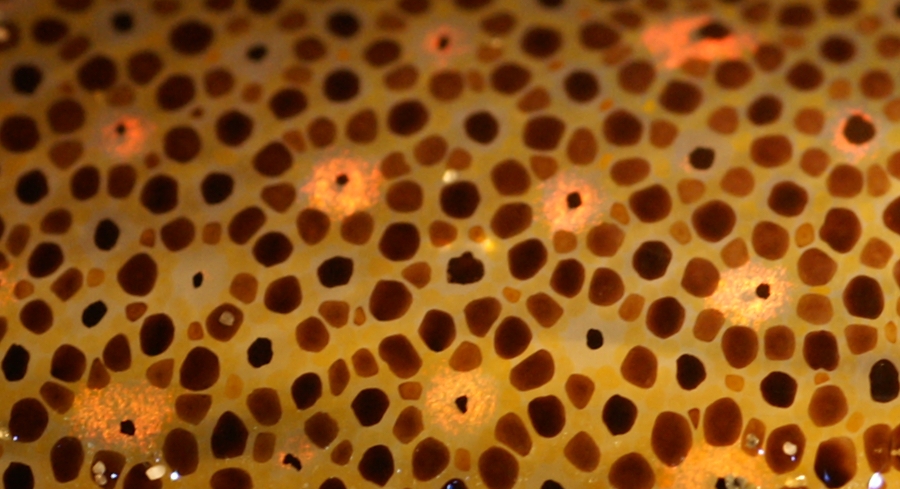Coral Reef Fish
 |
| Different Fish on the Reef. Photo by Katja Hasselkus [public domain] |
o Morphology
§ Disks and ovals
§ Silvery
§ Sloping head/tapered body
§ Heavy body/large lips
§ Reddish/big eyes
§ Eels
§ Sharks and rays – cartilaginous fish, rest mostly boney fish
§ Odd-shaped bottom dwellers
§ Odd-shaped swimmers
§ Swim with pectoral fins/ obvious scales
§ Small, elongated bottom dwellers
 |
| Diagram of a fishes anatomy. By Diagram by User:Gdr based on a drawing by Dr Tony Ayling. CC BY-SA 3.0 |
§ Dorsal fin
§ Fin spines
§ Caudal fin (tail fin)
§ Anal fin
§ Ventral fin
§ Pectoral fin
o Patterns:
§ Line marking radiating from eye
§ Bar (vertical line)
§ Ocellated spot
§ Stripe (horizontal line)
§ Spot
§ Speckles (fine spots)
§ Band (diagonal lines)
§ Blotch poorly define)
§ Lines (thin markings in any direction)
o Specialized cells for color and iridescence:
· cells that contain pigments
· stimulated by nerve impulses and or hormones· higher density of cells -> more brilliant color
§ iridophores:
· cells with crystals that reflect light
· GAUNINE nucleotide
· Act like a mirror
· Typical of silvery fishes
· Can display different shades of green, blue, pink, and iridescence
§ Loligo opalescens: (squid) chromatophore where the pigments are spread out, can be stimulated to condensed and can control
§ Hog fish: changes colors, the changes that occur are sometimes so fast that they cannot be tied to a physiological phenomenon. Their skin is actually light sensitive.
§ Color can tell you what stage of life the fish is in or distinguish male from females
o Camouflage: for predators and prey
§ Some fish use camouflage as a foraging strategy: sit and wait hunting
§ Some use it to blend into their surroundings to not get eaten
o Courtship, mating, egg guarding:
§ Some female fish may be attracted to male fish that change colors
§ Sergeant majors take on darker color when nest guarding
§ Clown wrasses turn bright when spawning
§ Some species use counter-shading to conceal movements
§ Dark on top
§ Light on bottom
o Other functions of color and patterning:
§ Conceal eye (false eye on body)
§ Exaggerated size
§ Advertise toxicity
§ Bright colors and behavior
- 32,000 different species of fish – 40-45% freshwater species

Comments
Post a Comment